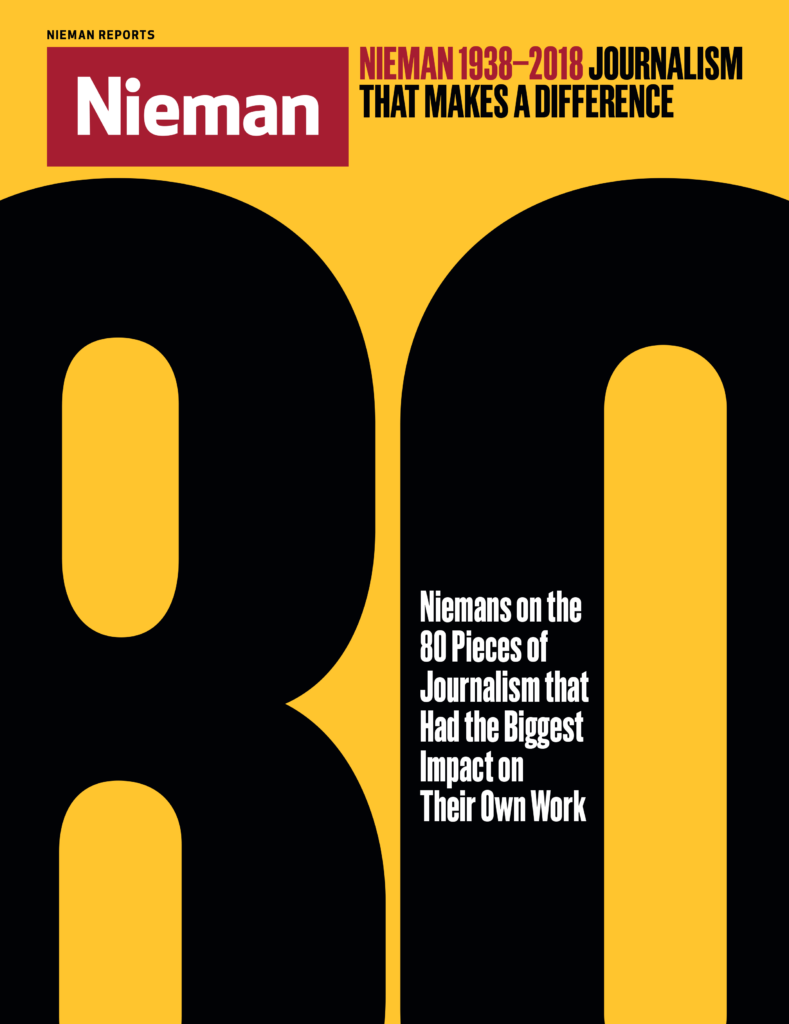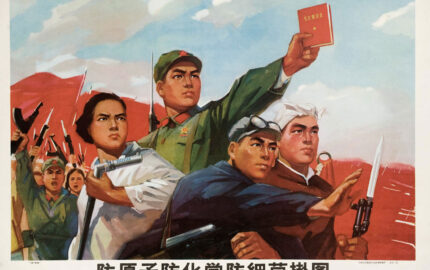
How are great journalists made? Often, it’s pieces of great journalism that help form them, influencing their lives or careers in an indelible way. To celebrate the Nieman Foundation for Journalism’s 80th anniversary in 2018, we asked Nieman Fellows to share works of journalism that in some way left a significant mark on them, their work or their beat, their country, or their culture. The result is what Nieman curator Ann Marie Lipinski calls “an accidental curriculum that has shaped generations of journalists.”
It’s late at night. I have school tomorrow, and I know it’s time for me to be in bed. But I’m sitting in the family car with my dad. There’s a blackout. We hear the sound of police sirens, and from afar, the pots that people beat against the military regime.
We are not going anywhere that night. We are listening to the car radio. The dim light of the device illuminates our faces as my father spins the dial and, between the static and the music, finds the voices of the Radio Cooperativa journalists.
Mine is a memory that many Chileans have. From the ’70s through the ’80s, Cooperativa was the voice of a nation that chose not to surrender to the silences and lies that tyrannies need to prevail.
“Weren’t you afraid?” I ask Cooperativa host Sergio Campos decades later. “We were afraid, of course,” he replies. “But we did our job.”
It took courage to do that work. Cooperativa informed us of many atrocities. It kept its audience company and empathized with us. When the opposition movement called for people to turn off the lights in their houses to oppose the regime, the radio played a popular love song which called precisely for that (in a romantic context, of course). In the midst of tensions, Cooperativa shared half a smile with its audience. The hosts, journalists, technicians, and the audience together transformed a news outlet into an institution.
Radio Cooperativa not only inspired me. In time, I became one of its voices. Sometimes, I ask myself if I or any of us, if necessary, could be that voice of a nation: one that a father and a daughter listen to, their faces barely illuminated, as they turn on the radio in the midst of a dark, long night.
Radio Cooperativa
Chile, under General Augusto Pinochet’s regime, 1973-1990
Radio Journalism


